In the Kakuma Refugee Camp, the Private Sector Means Business
Commercial investments in Kenya's refugee camp reflect its complex and vibrant economy.
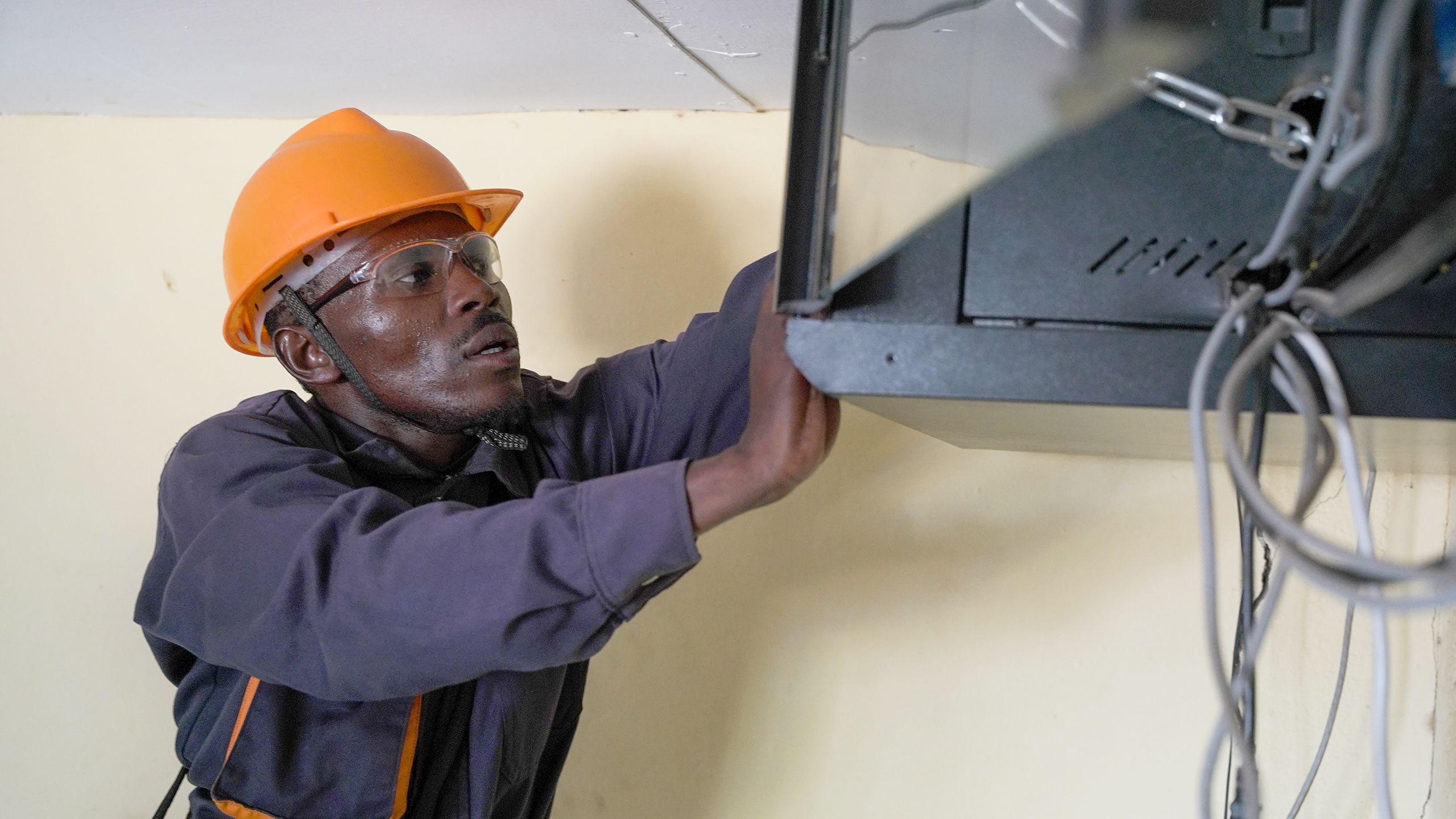
By Paula Rogo and Jason Hopps. Photos by Amit Ramrakha.
Whenever Fabrice Kitala Mupenge and Olivier Itulabwami walk the busy streets of the Kakuma refugee camp in northern Kenya, many call out to them with an affectionate nickname.
“The Wi-Fi boys!” Mupenge says with a chuckle as he stands outside the internet cafe he owns with his friend and business partner, Itulabwami. “That was the name given to us here, the Wi-Fi boys!”
Mupenge, 32, and Itulabwami, 34, are helping bring affordable, accessible internet to their community through Wicomnet Solutions, the first internet provider in the Kakuma Refugee Camp, home to more than 270,000 refugees and asylum seekers from across Africa.
Indeed, both Itulabwami and Mupenge are refugees themselves, having come from the Democratic Republic of Congo (DRC) just over a decade ago. Their entrepreneurial spirit, fed by their desire to improve lives in Kakuma, led them to launch their company in 2019 with only about 10,000 Kenyan shillings, then the equivalent of about $90.
“We are doing something that is not easy because of the environment we live in,” says Mupenge, who studied business administration in the DRC before he arrived in Kenya. “We realized that with the internet, we can bridge the digital divide. The people we are serving are mostly refugees. And if we bring this service here to the camp, it will help a lot of people.”
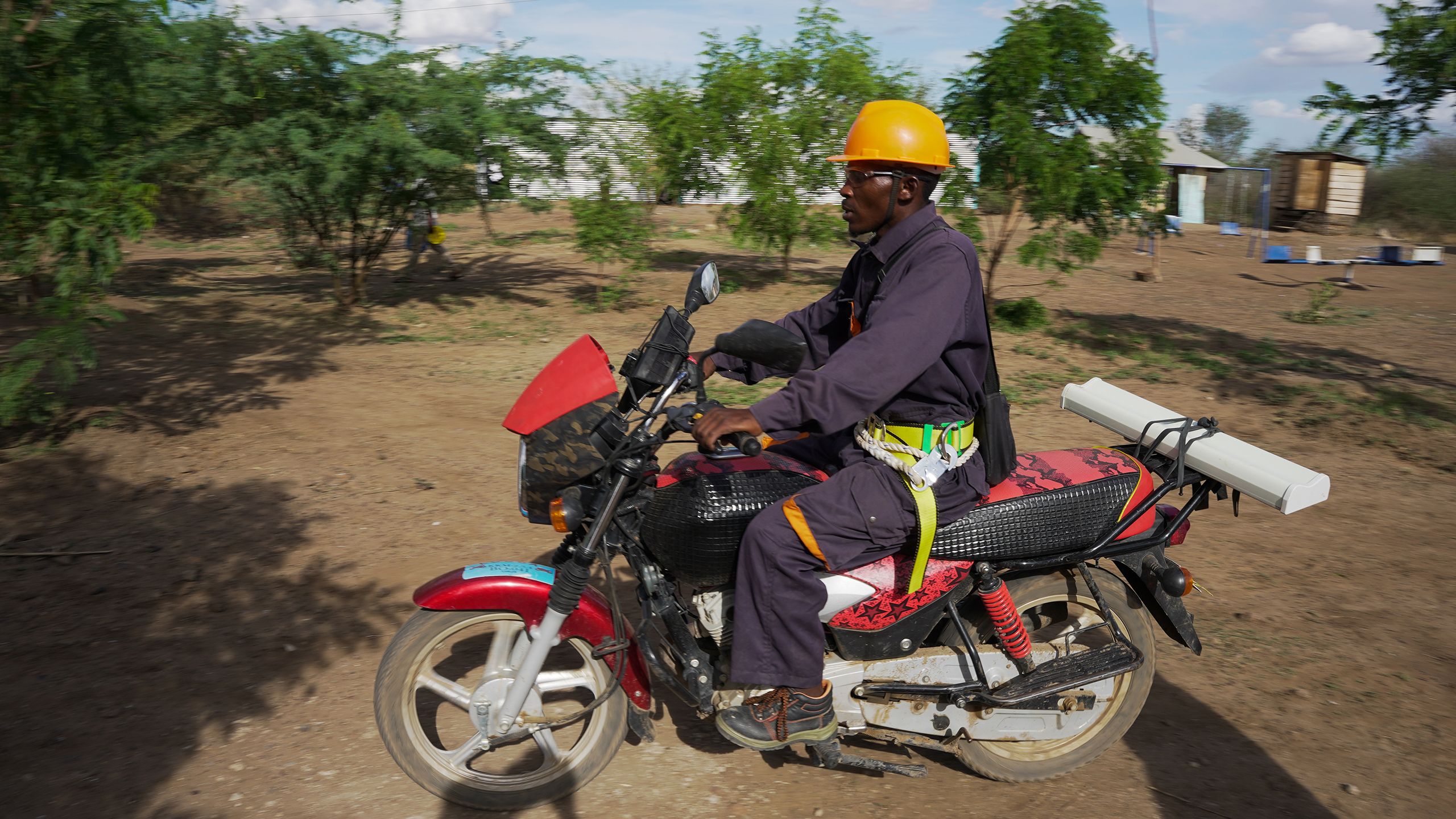
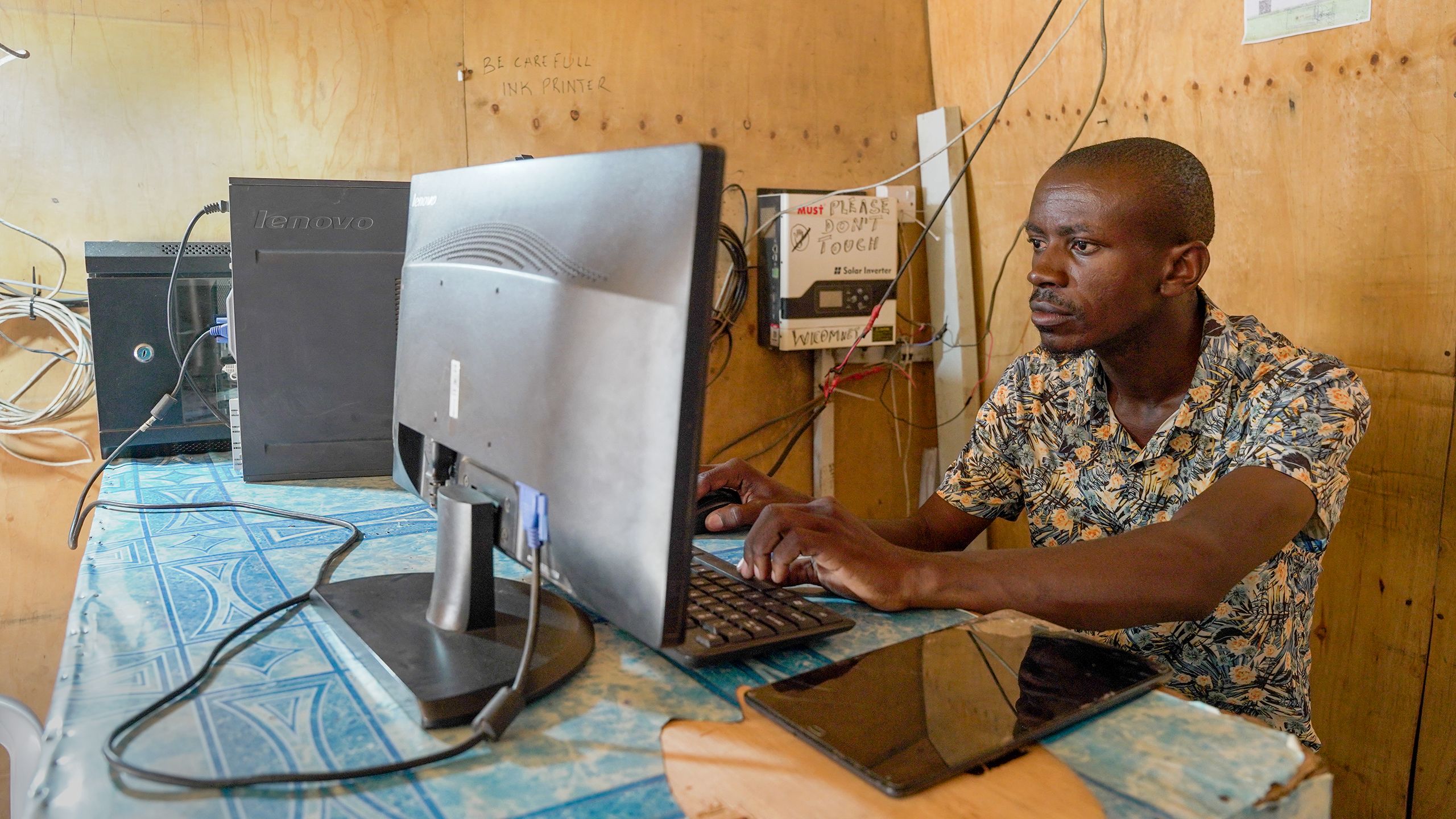
Groundbreaking Study
The private sector has a long history of engaging in refugee initiatives through philanthropy, participation in humanitarian agency efforts, and more recently through corporate social responsibility initiatives. However, supporting commercial investments has only begun over the last decade or so.
Wicomnet Solutions is part of a growing trend—and strategy by IFC and others—to bring private investment, goods, services, and jobs to refugees and their host communities in Kenya’s Kakuma camp and beyond.
Established in 1992, the Kakuma camp sits about 750 kilometers north of Nairobi, near the South Sudanese, Ethiopian, and Ugandan borders. Initially designed to host young Sudanese refugees fleeing civil war into Kenya, it has since grown to host hundreds of thousands of people—and has become an increasingly complex and vibrant economy.
Kakuma was also the site of a groundbreaking 2018 IFC study that measured the size of Kakuma’s market ($56 million total consumption) and examined how the private sector could support development and opportunity in the region—not displacing humanitarian aid, but instead building on it.
The study’s findings—namely that Kakuma’s largely humanitarian dependent economy could benefit greatly from private sector interventions—provided the impetus for IFC’s first refugee-focused private sector development program in sub-Saharan Africa, the Kakuma Kalobeyei Challenge Fund (KKCF).
Launched by IFC, KKCF is supporting private sector investment and unlocking the economic potential of refugees and the host community in Turkana County by helping dozens of companies introduce their products and services. KKCF is supported by UNHCR, AECF, and Kenya’s Turkana County Government.
“The trend is in the direction of more engagement from the private sector,” said Danny Cutherell, the Africa Director for Refugee Investment Network, which works to build the investment ecosystem for refugee-led and supporting ventures. “We're seeing more and more people, organizations, and governments that are supportive of private sector involvement in the refugee space.”
Since 2019 and through business competitions, KKCF has provided 122 businesses with financing and advisory services. One of these companies is Itulabwami and Mupenge's Wicomnet Solutions, which received financial support and training from KKCF. Other businesses have provided electricity and healthcare services to an estimated 73,000 people; and over 2,000 farmers and beekeepers have been trained on modern agricultural technologies.
Overall, KKCF-supported businesses have created more than 300 direct jobs, including 199 for women and 82 for refugees. KKCF also plans to measure the indirect and induced jobs created from these companies.
Additionally, KKCF supported three microfinance firms that have provided almost 2,000 loans in and around Kakuma, further supporting development. The program has also supported local government efforts to establish investment policies and regulatory frameworks that will promote increased private sector investment in the area.
Kakuma is today an increasingly vibrant and dynamic place, energized by the area's entrepreneurial spirit and growing private sector activity. Improvements include solar lights installed by a KKCF-supported company that illuminate the camp’s streets, while also providing better safety and security.
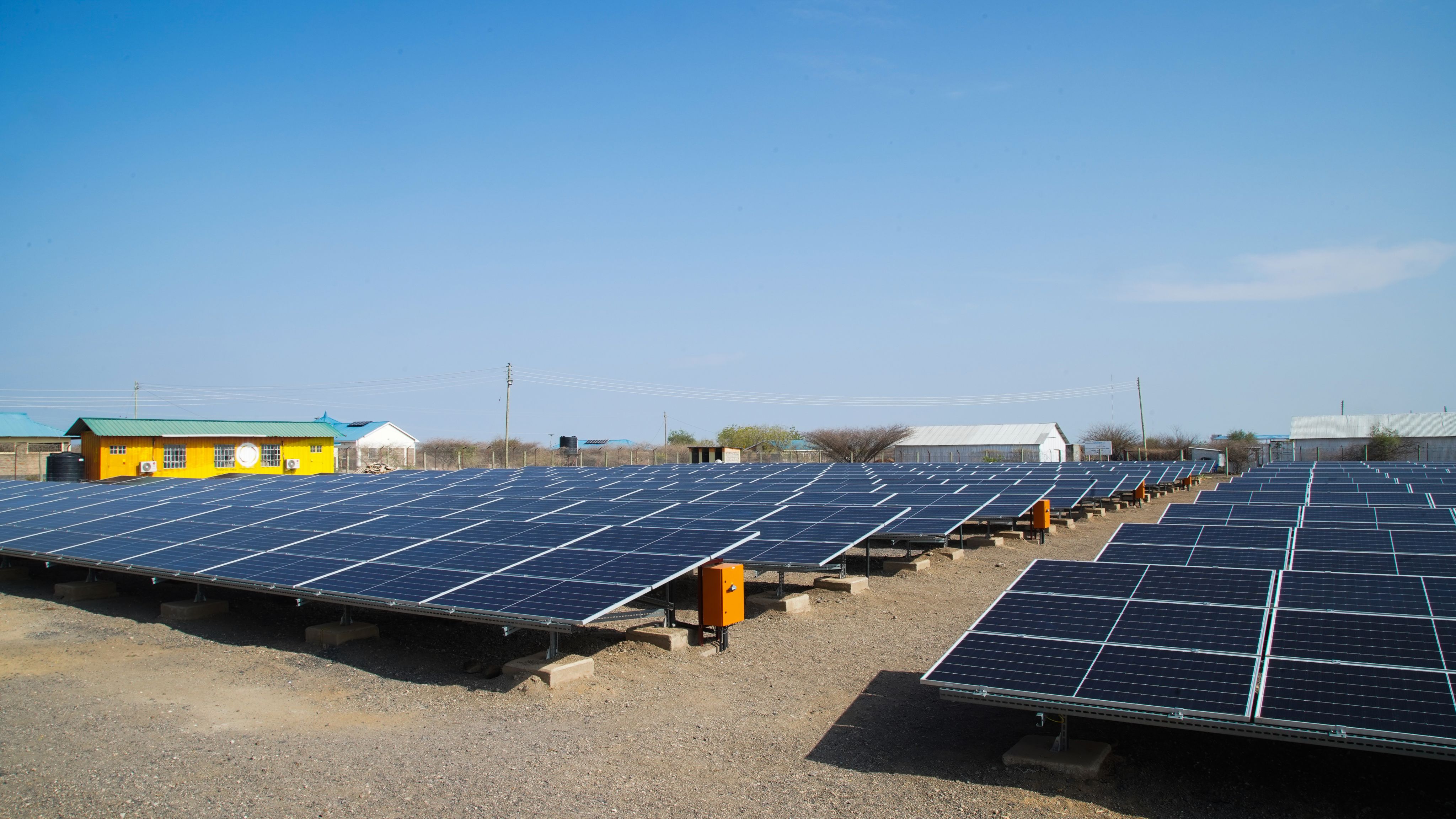
KKCF funding allows Renewvia Energy Kenya to expand capacity and increase connections in the Kalobeyei settlement area. The company provides electricity to over 15,000 people through its mini-grid system.
KKCF funding allows Renewvia Energy Kenya to expand capacity and increase connections in the Kalobeyei settlement area. The company provides electricity to over 15,000 people through its mini-grid system.
“We've proven that a refugee camp can be a market where refugees and host community members can thrive, and that interest from private companies can be generated to start investing in these areas,” said IFC’s Luba Shara, who manages KKCF and co-authored the 2018 IFC study. “We found many entrepreneurs in Kakuma who were looking to start or even expand their businesses.”
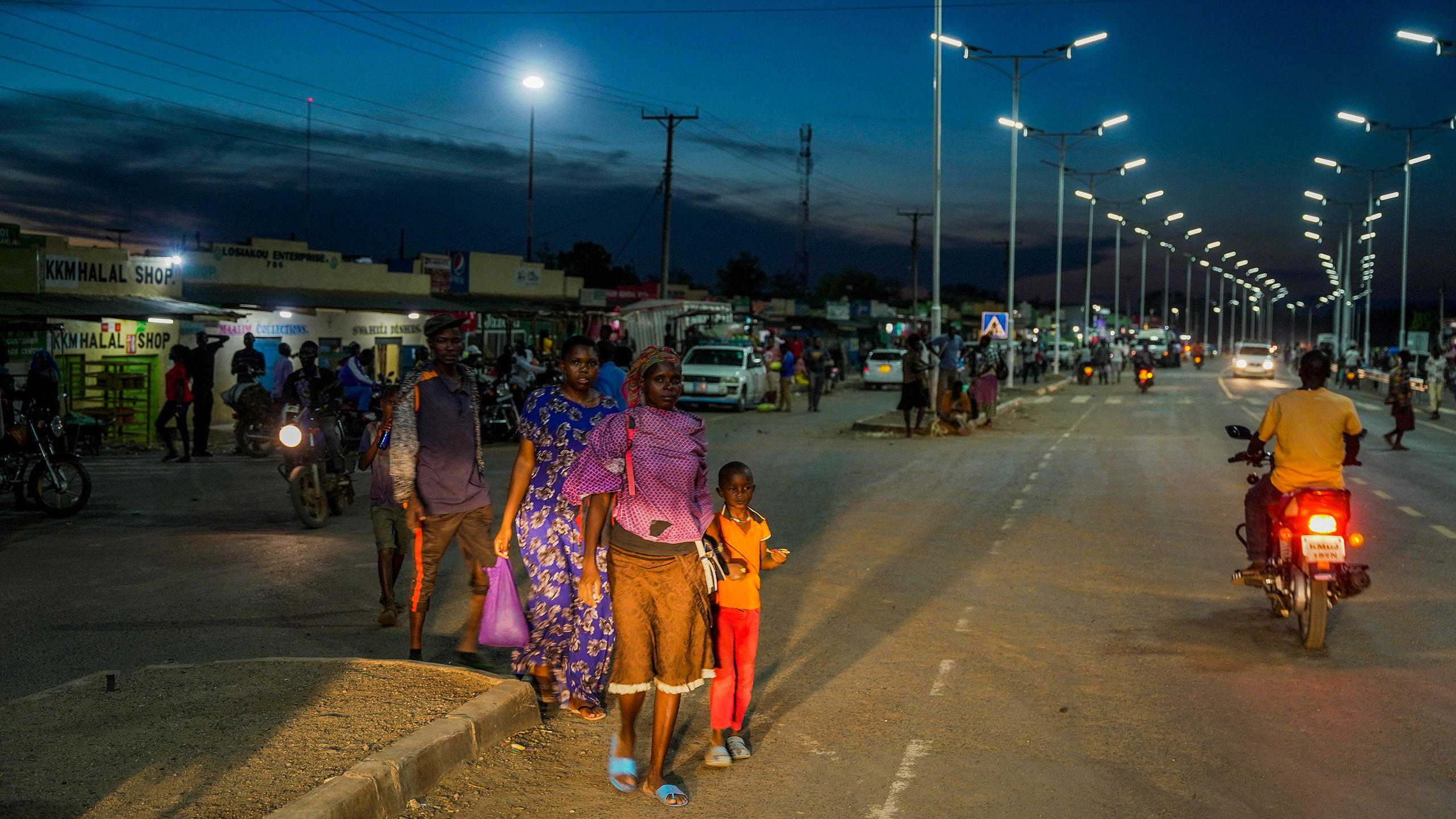
Justin Arike Abraham runs one of those businesses. A refugee from what is now South Sudan, he arrived in Kakuma in 2009 and turned to tailoring to earn an income. Training and funding from KKCF helped him expand his business, hire two employees, and offer tailoring lessons to other refugees.
"With this shop, I can never sleep hungry," he said. "People are always buying clothes and thanks to KKCF, I was able to expand my business and help other people learn a new skill."
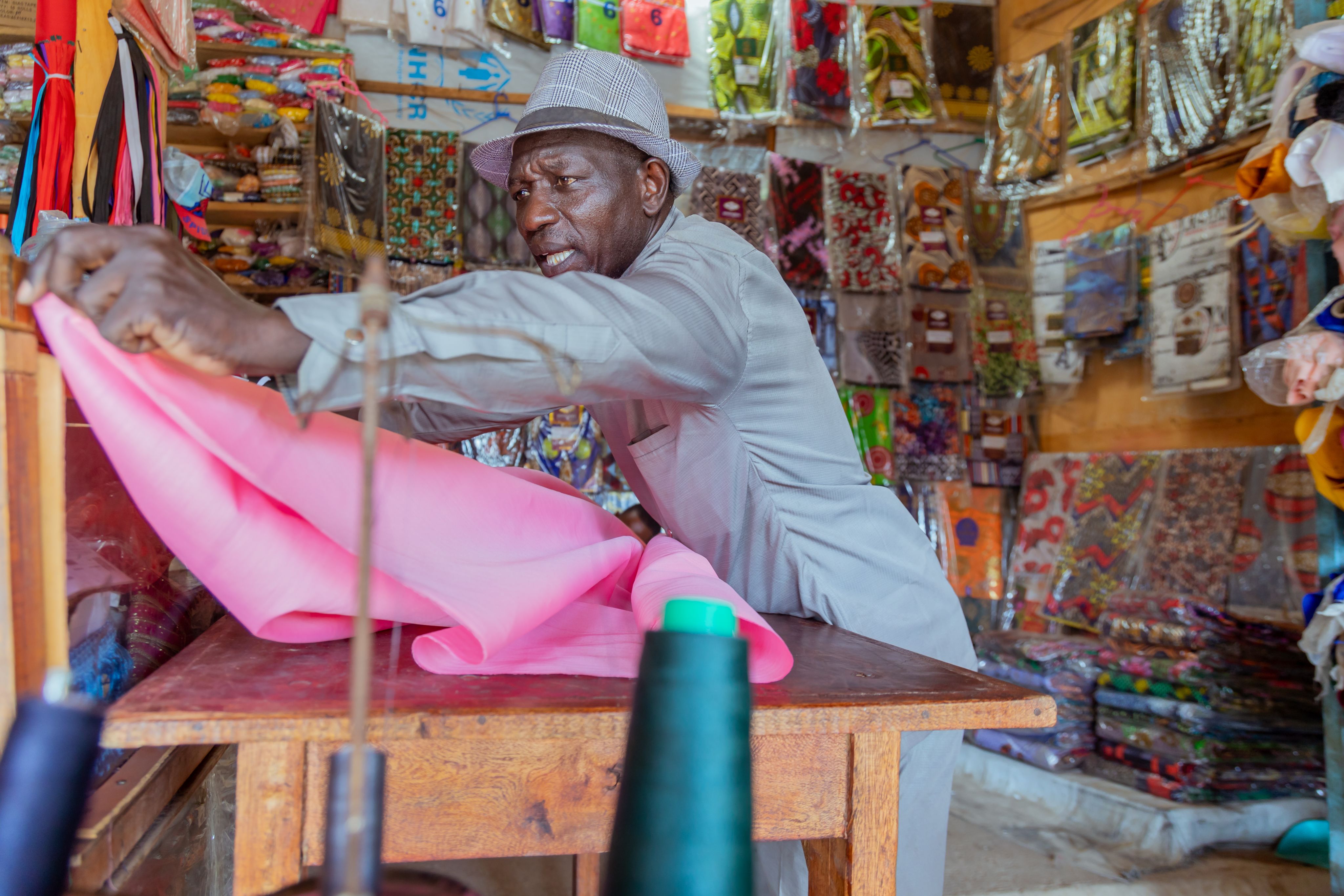
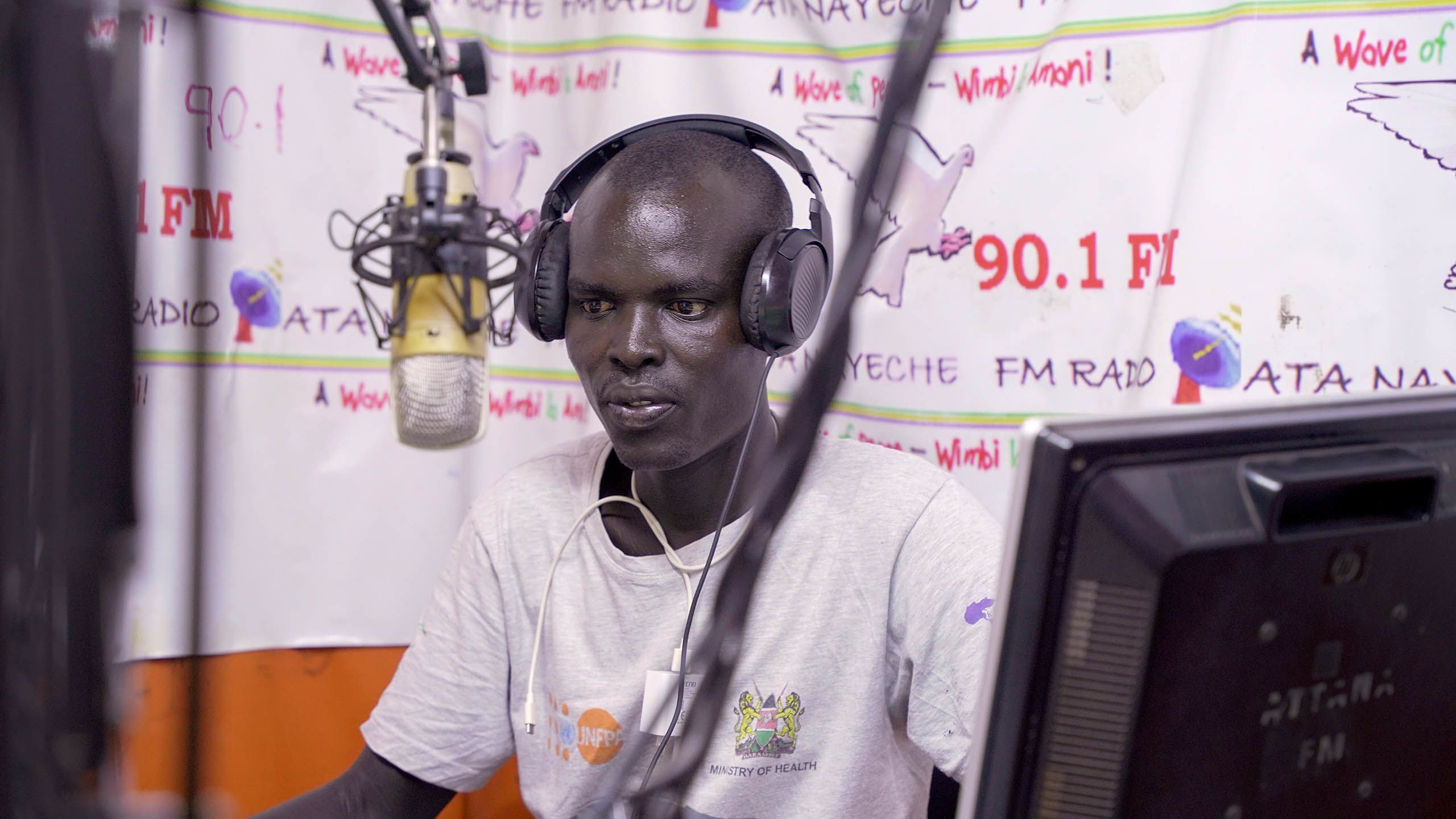

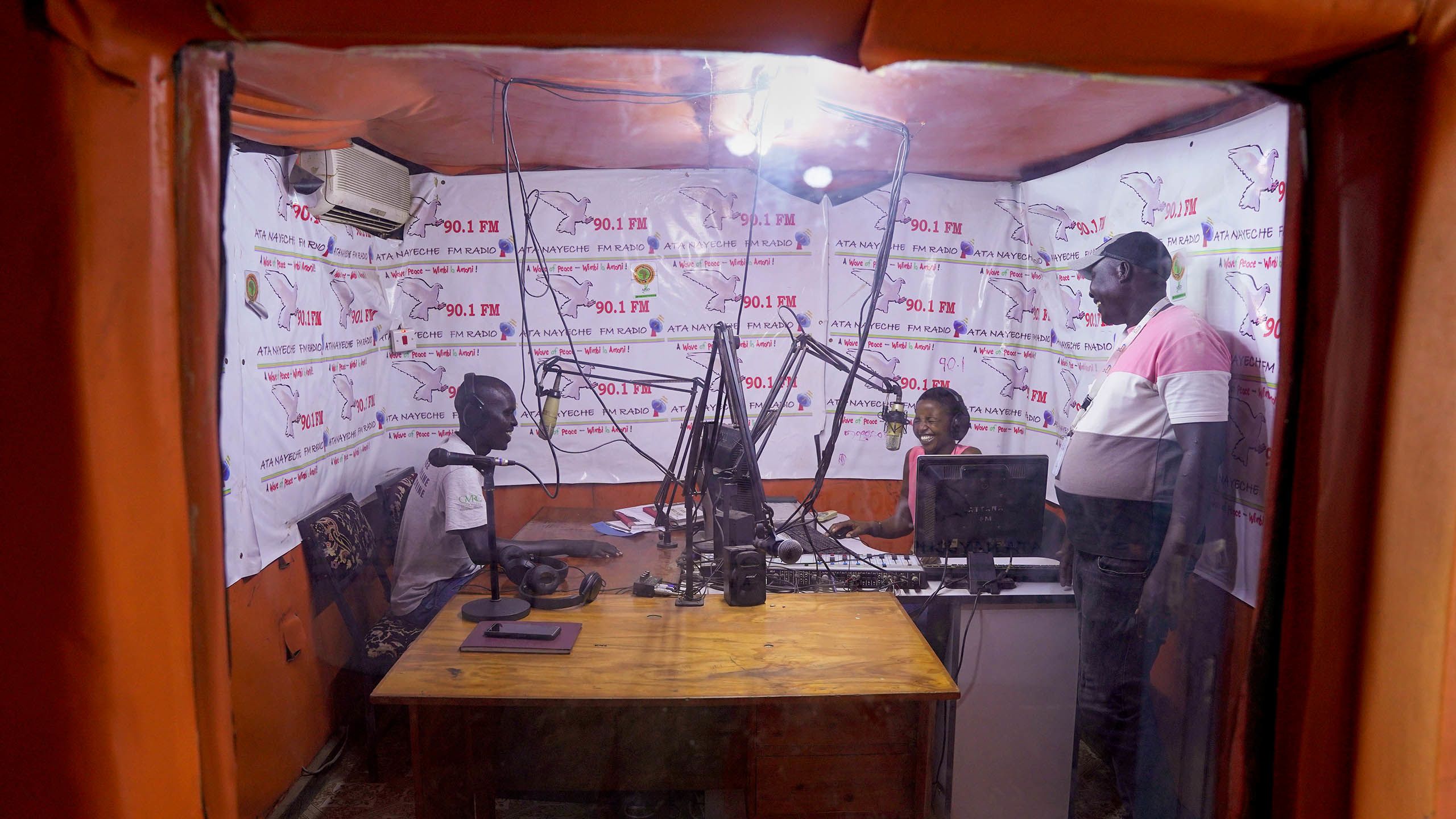



Radio presenters at Atta Nayeche FM, a Turkana-owned business, prepare for the morning broadcast as Managing Director Michael Adir looks on.
Radio presenters at Atta Nayeche FM, a Turkana-owned business, prepare for the morning broadcast as Managing Director Michael Adir looks on.
Sustainable solutions
As of September 2023, 114 million people have been forcibly displaced worldwide, with most hosted in low- and middle-income countries. With government budgets and aid agency funding increasingly stretched, KKCF is seeking to prove that private sector interventions can offer sustainable solutions for populations historically dependent on humanitarian support.
In Kakuma, and as highlighted in the Kakuma as a Marketplace study, the challenges to private sector development were numerous and included a lack of access to finance and training, few or irregular essential services, and a limited regulatory framework for refugee entrepreneurs.
Despite these hurdles, thousands in Kakuma have turned to entrepreneurship to generate incomes and improve their lives, with many working as tailors, mechanics, welders, or shopkeepers.
The KKCF program recognized the potential of Kakuma’s resilient economy and entrepreneurial spirit and is supporting both by providing funding and guidance to private enterprises – large, small, local and international – on how to establish and grow businesses in the area.
KKCF helped attract companies to Kakuma from outside the area to build the foundations of a strong private sector. Six companies from Europe, North America, and other parts of Africa were among the early KKCF competition winners. Today, they are providing waste recycling, renewable energy, sanitation, access to finance, and child and health care services in the region.
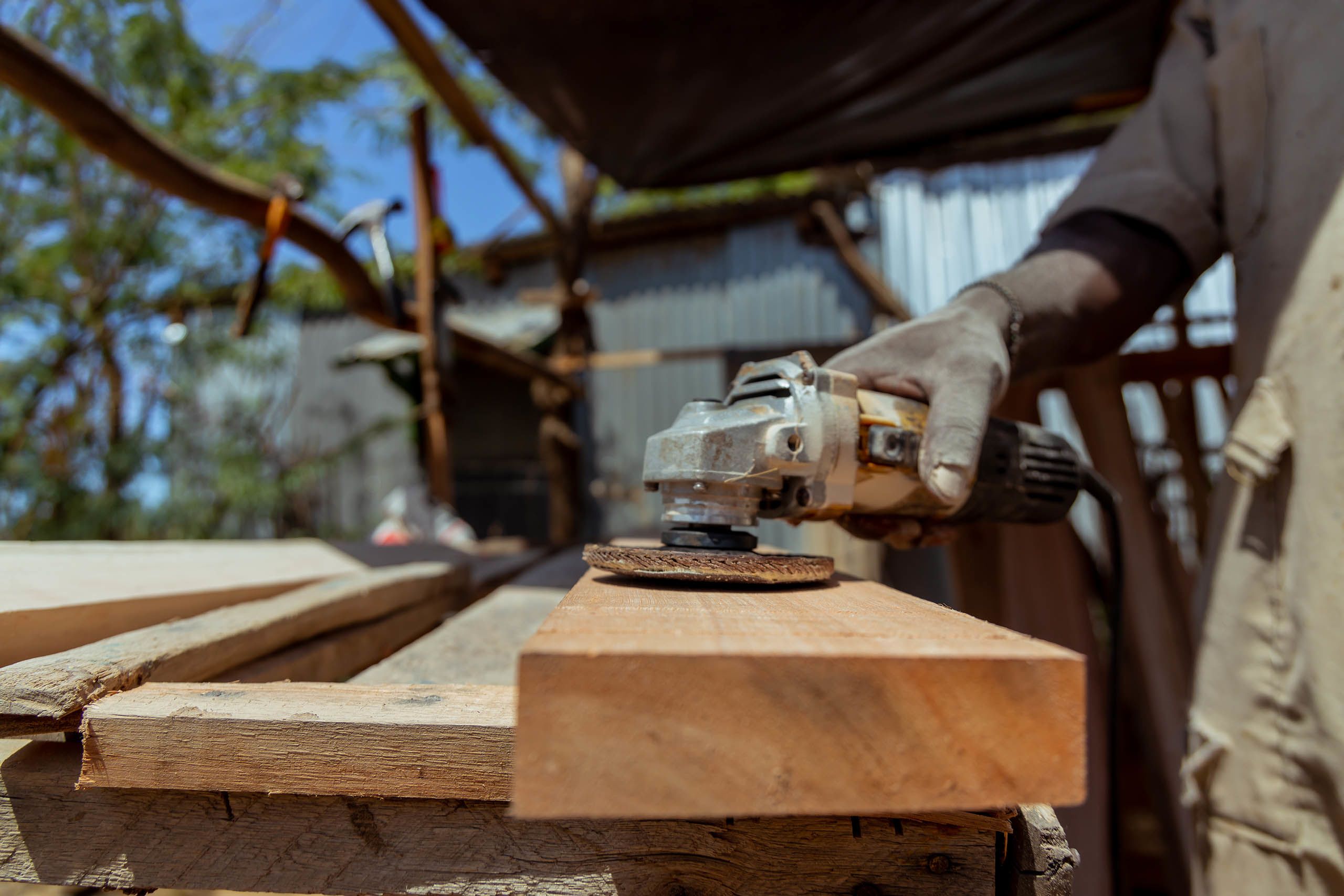
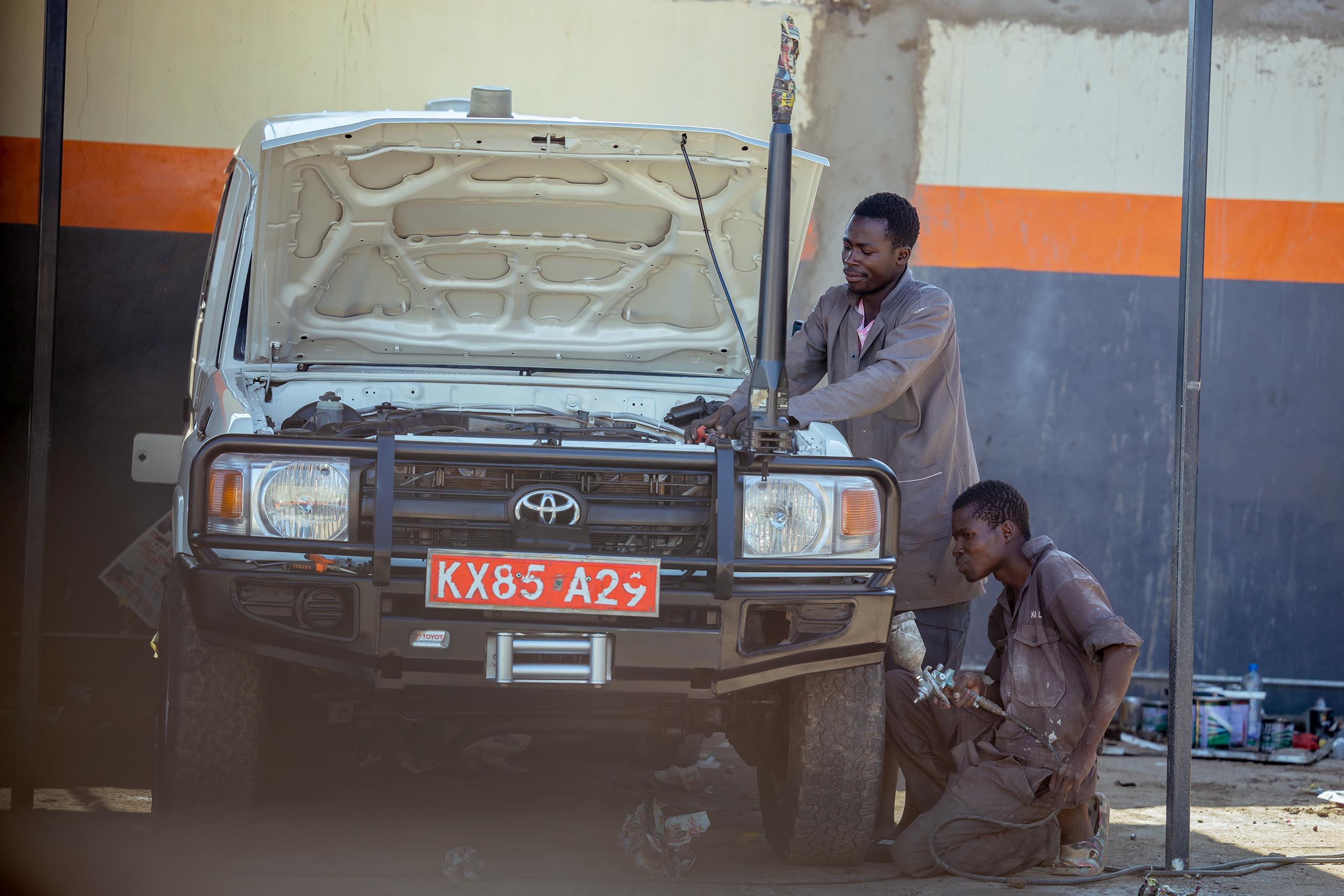
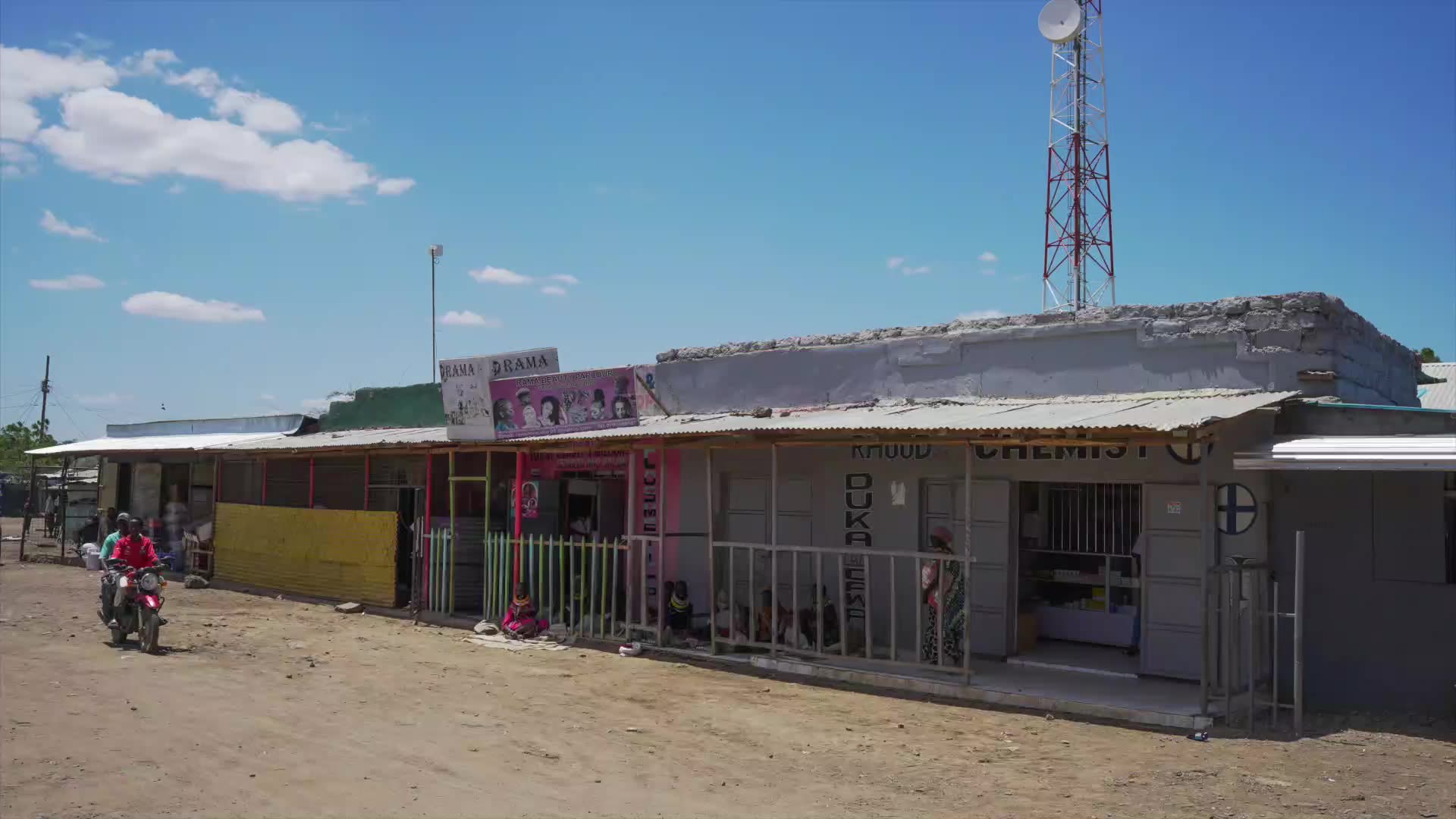
KKCF gave preference to firms owned or led by women and young people, and those that demonstrated high development impact. The program also supported a well-known, established business, Goodlife Pharmacy, one of East Africa’s largest pharmacy chains, to open a branch in Kakuma, underscoring the area’s viability as a market.
“There are hundreds of thousands of consumers to serve and they need the service we are providing,” said Goodlife’s Chief Operating Officer, Justin Melvin. “There’s an opportunity in Kakuma and that’s why we chose to go there.”
Read about Kakuma's new business center here.
Read about Kakuma's new business center here.
To enable more businesses like Goodlife to realize the opportunities, KKCF leverages partnerships.
“Partnerships are absolutely essential between the private sector, development finance institutions, and agencies like UNHCR,” said Jumoke Jagun-Dokunmu, IFC’s Chief Investment Officer & Head of Fragility for Africa.
IFC and UNHCR have been working together since 2016 to improve the lives of those forcibly displaced and their hosts, implementing projects in Brazil, Colombia, Ethiopia, Iraq, Jordan, Kenya, Lebanon, and Uganda.
“IFC brings private sector knowledge and support and the UNHCR provides humanitarian solutions, and these assets combine well in a place like Kakuma, where both are not only useful but also necessary,” said Jagun-Dokunmu.
With KKCF, IFC and its supporters, including the Turkana government, are keen to extend the program for at least another year to help grow more businesses in the area. Studies are underway to determine whether its methods and lessons could be applied in other refugee settings, including Dadaab Camp, Kenya’s largest refugee camp, which hosts about 280,00 refugees, mainly from Somalia.
As for the “WiFi Boys,” the sky’s the limit.
“Thanks to KKCF we are dreaming even bigger,” said Itulabwami. “Our plan is to expand by creating hotspots throughout Kakuma and Kalobeyei, so that refugees and the host community can easily access affordable internet wherever they are.”
KKCF is supported by the Ministry of Foreign Affairs of the Netherlands, the Swiss Agency for Development and Cooperation (SDC), the German Federal Ministry of Economic Cooperation and Development through KfW, and the UK's Foreign, Commonwealth and Development Office (FCDO), and the European Union.
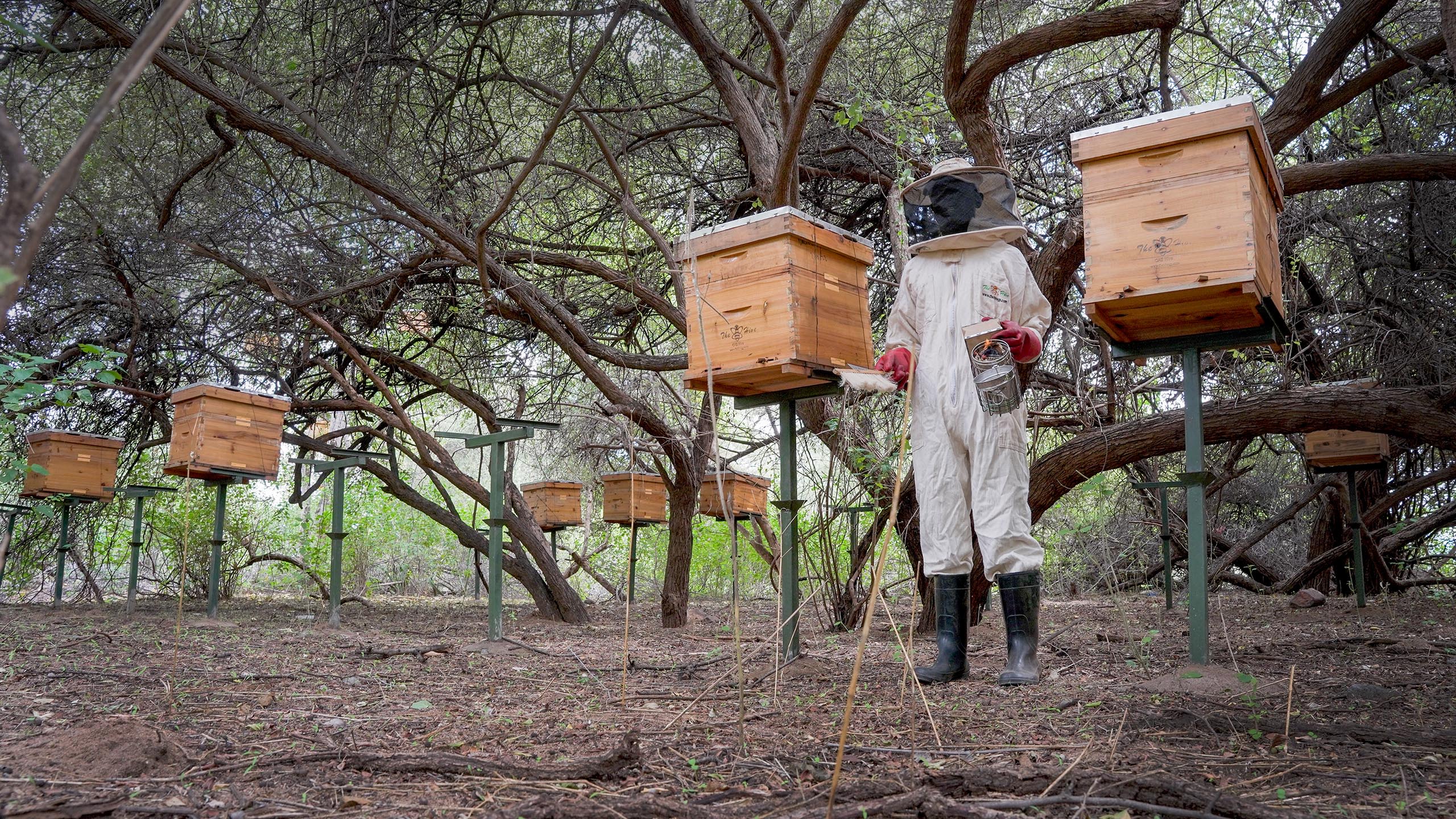
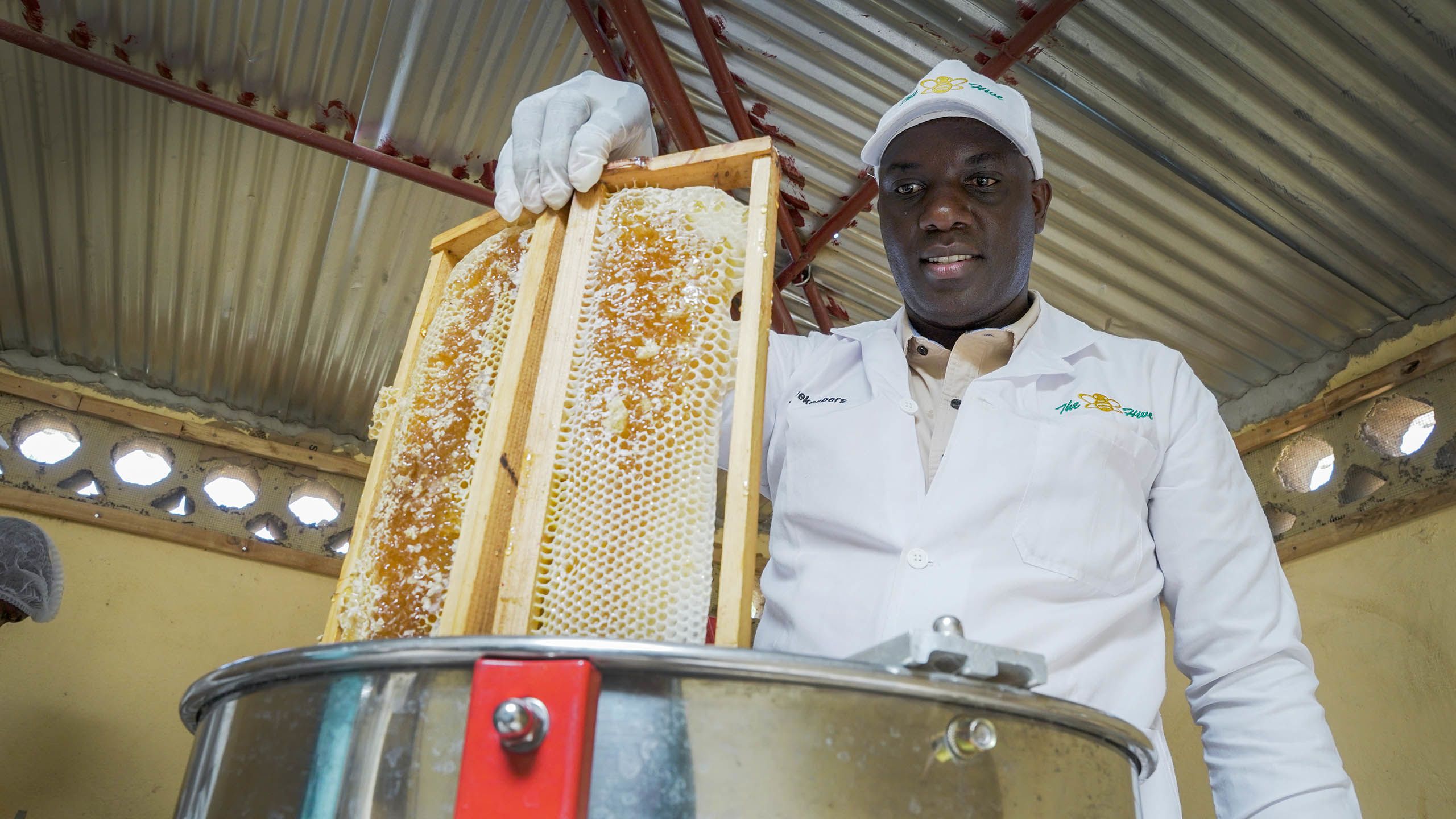
Published December 2023
